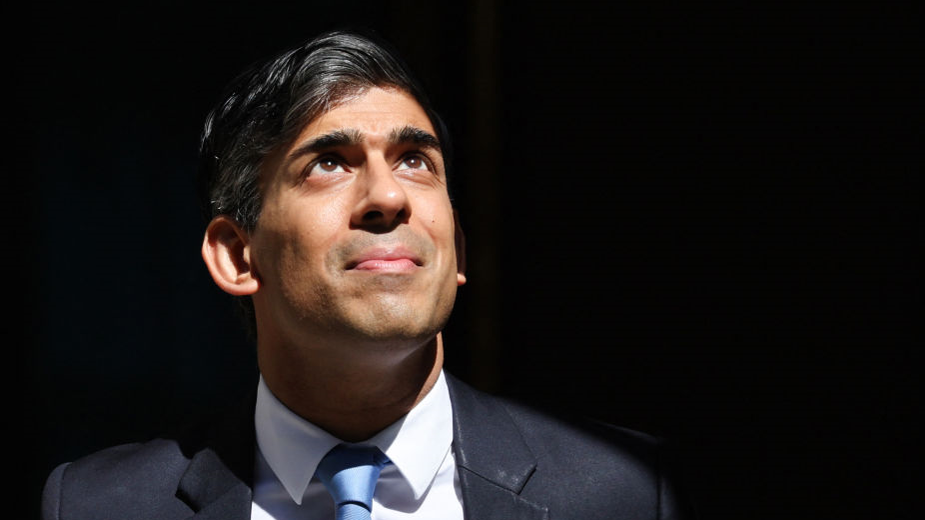Sunak says it'll take time for people to feel better

- Published
Prime Minister Rishi Sunak has said that it will "take time" for people to "really feel better" as figures revealed the UK had emerged from recession.
The economy grew by 0.6% between January and March after shrinking in the second half of last year.
Mr Sunak told the BBC that the UK economy has "real momentum" but admitted there was "more work to do".
Both Labour and the Liberal Democrats said there was little to celebrate. "After 14 years of economic chaos, working people are still worse off," said Labour's shadow chancellor Rachel Reeves.
Gross domestic product (GDP) - which measures the amount of goods and services an economy produces - rose by more than expected in the first three months of the year. Analysts had forecast 0.4% growth.
Mr Sunak suggested that there was now some strength behind the UK economy, which saw the fastest pace of growth for two years between January and March.
The UK fell into recession at the end of last year after shrinking for two three-month periods in a row.
Mr Sunak said: "Of course there's more work to do and I get that and that's why I'm keen to stick to our plan and keep delivering for people.
"But I think today's figures show that we now have momentum."
However, Ms Reeves said: "This is no time for Conservative ministers to be doing a victory lap and telling the British people that they have never had it so good."
Lib Dem Treasury spokesperson Sarah Olney said it was the time to call a general election.
The economy will be a key battleground in the upcoming election, the date of which is yet to be revealed.
Meanwhile, the FTSE 100 index closed on a fresh record high after the economic figures came out.
It closed 52.41 points, or 0.63% higher, at 8,433.76, with finance and industrial stocks among the biggest risers of the day.
UK exits recession with fastest growth in two years
- Published10 May 2024
Faisal Islam: Economy is getting better but people may not notice
- Published10 May 2024
Earlier this week, the Bank of England's governor Andrew Bailey told the BBC that the UK was seeing a recovery, though not a strong one.
The Bank voted to hold interest rates at a 16-year high of 5.25%. It expects inflation - which measures the pace of price rises - to fall back to its 2% target in the next couple of months.
That had lifted forecasts of a rate cut next month. However, the stronger than expected GDP figures have dampened those expectations.
Ruth Gregory, deputy chief UK economist at Capital Economics, said it showed "the Bank of England doesn't need to rush to cut interest rates".
She said the first rate cut would ultimately be determined by upcoming employment and inflation figures.
Mr Sunak said that the GDP figures show that the UK has the joint highest growth rate in the G7 developed nations, tying with Canada.
He added: "Wages are going up, energy bills are coming down and taxes are going down."
The government has cut National Insurance by 4% since late last year.
However, it has also kept income tax thresholds frozen so when a person's wage increases, they could be moving up into a higher tax bracket.